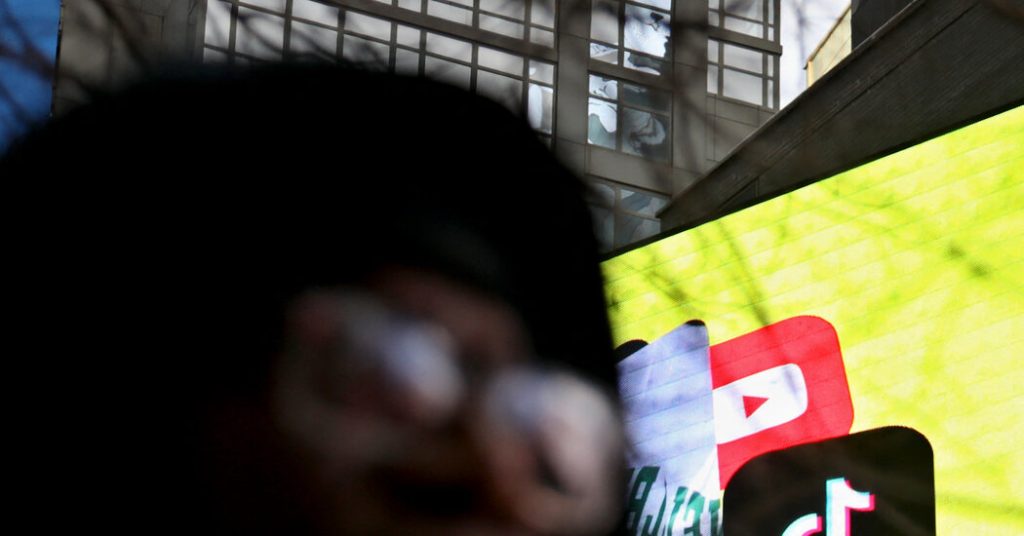It’s been a common refrain for years: “The U.S. government doesn’t do audacious, bold things anymore.” Well, if banning TikTok—a platform that nearly half of all Americans use regularly—isn’t audacious, then what is? Conversations about such a move are no longer hypothetical. Yesterday, the Supreme Court unanimously upheld a bill passed by Congress last year that forces ByteDance, the Chinese company owning TikTok, to sell the platform. Refusal to comply could result in TikTok being rendered unavailable for downloads or updates in the U.S. as early as tomorrow.
On the surface, the idea of banning an app of TikTok’s scale feels almost unimaginable. There’s little precedent for a step of this magnitude when it comes to a digital platform. A ban would ripple through the lives of millions of Americans, disrupting their habits, businesses, and even communities. For some, it’s the equivalent of pulling the plug on a beloved pastime, a reliable income source, or even a cultural lifeline.
Yet beneath these inconveniences is a broader narrative—one that centers on national security, geopolitical competition, and the growing tension between the United States and China. This situation reveals just how intensely both nations are vying for influence on the global stage and how deeply intertwined our digital tools have become with questions of power, privacy, and trust.
### The TikTok Dilemma
TikTok’s allure is undeniable. It’s fun, it’s addictive, and, in a very short time, it’s become a cultural behemoth. But alongside its whimsical dances, viral challenges, and punchy one-minute recipes lies a more sobering reality. TikTok is owned by ByteDance, and by extension, many in the U.S. government fear, it’s tethered to the Chinese government. This connection has raised alarms on several fronts.
The concerns aren’t just speculative. During oral arguments at the Supreme Court last week, Justice Brett Kavanaugh pointed to TikTok’s data collection as a potential long-term national security threat. “What happens,” Kavanaugh mused, “when someone who grows up using this app ends up working for the State Department or the CIA—or worse, becomes a target for blackmail?” Justice Ketanji Brown Jackson echoed similar apprehensions about spying, while Justice Sonia Sotomayor honed in on the core issue: “It’s about the data control.”
TikTok’s U.S. representatives argue the platform is safe and that Beijing would not or could not compel the company to hand over sensitive user information. However, past behavior by the Chinese government, including its alleged efforts to accumulate large datasets on American citizens for intelligence purposes, undercuts those assurances. A unanimous Supreme Court ruling underscored this history, lending teeth to the claim that the risks of inaction outweigh the inconveniences of a ban.
### Bipartisan Action in a Divided Time
Remarkably, amidst political polarization, the push to address TikTok’s influence has united Democrats and Republicans alike. This is not something we’ve seen often in Washington lately. The bill passed the House 360 to 58 and the Senate 78 to 18—numbers that reflect an unusually broad consensus.
Concerns extend beyond potential espionage, though. Members of Congress have voiced worries over TikTok’s role as a platform for spreading misinformation and propaganda. Independent researchers have evidenced that the app skews toward narratives that align conveniently with the Chinese Communist Party’s political objectives. For example, finding TikTok videos backing Taiwan, Tibet, or Ukraine—the very topics Beijing opposes—can be an exercise in futility. It’s not just about the data; it’s about influence, both subtle and explicit.
But here’s the rub: TikTok is more than a geopolitical pawn. It’s a cultural phenomenon, a business platform, and a creative outlet for millions of Americans. Entire careers have been built on the app. Teenagers use it as their primary social medium, creators launch global trends, and entrepreneurs credit it with revitalizing small businesses. For many users, the prospect of a ban feels unjustified, even cruel—like tearing down a thriving, democratized digital economy.
### Is This the New “Bold Government”?
Bold, ambitious projects like this—ones focused on foreign adversaries—were once hallmarks of the American government. We can look back at history for precedents: the race to put a man on the moon during the Cold War, the post-Sputnik surge in scientific research, even the monumental construction of the Interstate Highway System. Granted, forcing a tech company to sell its most valuable asset or potentially shutting it down doesn’t reach the heights of these historical undertakings. But it does spark a new kind of ambition—not of creation, but of containment.
The TikTok controversy feels like a reflection of this era’s geopolitical urgency: a digital space race of sorts, where protecting national security might mean dismantling aspects of global interconnectivity. And make no mistake—the implications of a TikTok ban are significant enough to resonate outside Washington and into the lives of everyday Americans.
### What Happens Next?
Right now, all eyes are on the looming deadline. ByteDance faces a stark choice—sell TikTok’s U.S. operations or face a shutdown. Should the Biden administration temporarily enforce the ban during its short window before the Trump administration potentially takes over, the American political scene will grow even more complicated.
If Trump returns to office, the TikTok saga could take unpredictable turns. On one hand, he originally propelled much of the government’s scrutiny of TikTok during his first term, citing national security risks. On the other hand, recent shifts in his stance suggest the issue might become further politicized. Reports indicate a TikTok investor with ties to Republican donors successfully lobbied Trump to backtrack on supporting a full ban. There’s also the undeniable reality that Trump himself enjoys the vast popularity he has on TikTok.
For its part, Beijing remains steadfast in its opposition to a ByteDance sale. TikTok, for China, isn’t just a lucrative export—it represents a soft power asset in the U.S., one it’s keen to keep tethered to its national interests. This clash of wills could leave the final TikTok outcome teetering between several scenarios: a ban, a sale, or an ongoing legal and diplomatic tug-of-war.
### A World Beyond TikTok
It’s worth considering the bigger picture here, too. TikTok isn’t the first tech platform to raise concerns about foreign influence, and it won’t be the last. Data privacy and cybersecurity are global issues that governments everywhere are struggling to manage within their borders. Is banning TikTok a one-off decision, or does it signal the beginning of a broader reevaluation of how much foreign tech influence the U.S. will allow?
Regardless of what happens, one thing is clear: The TikTok saga has become more than just a debate about an app. It’s a proxy for larger, unresolved questions about trust, sovereignty, and the role of government in protecting citizens in an interconnected digital world. And in banning TikTok—or at least threatening to do so—the U.S. government is staking its claim in this era’s great power competition.
As this chapter in the U.S.-China standoff unfolds, everyday TikTok users are left in limbo. For now, they’ll keep scrolling, crafting dances, and sharing content under the specter of uncertainty. Whatever happens next, it’s a reminder that even the most entertaining tools in our lives can carry the weight of global rivalries and national security dilemmas.









